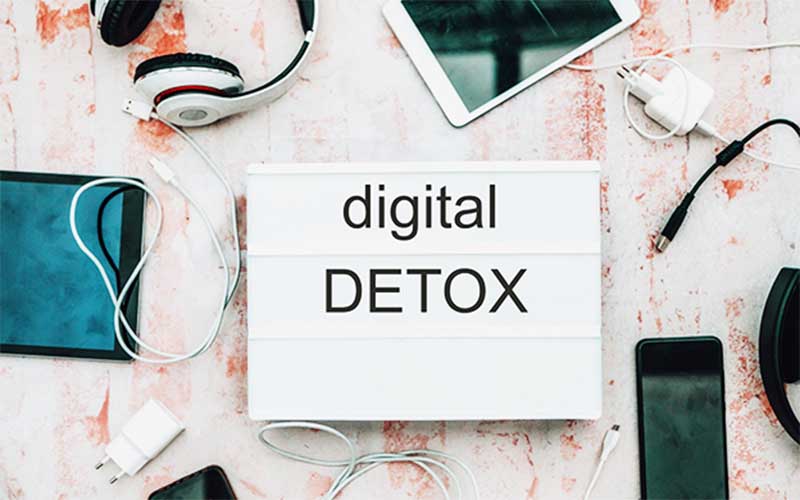 Burning eyes, anxious fingers and what feels like small knots on the middle of my forehead are all signs that I need a digital detox. It seems impossible for many, as our phones have somewhat become our third arms – almost impossible to live without and so central to how we live our lives. Even if one is not in such a position, FOMO ( Fear of missing out) always seems to reign supreme.
Burning eyes, anxious fingers and what feels like small knots on the middle of my forehead are all signs that I need a digital detox. It seems impossible for many, as our phones have somewhat become our third arms – almost impossible to live without and so central to how we live our lives. Even if one is not in such a position, FOMO ( Fear of missing out) always seems to reign supreme.
There is a particular shame associated with acknowledging that you have become locked into the digital prison. It’s like admitting that you have no self-control and give in freely to casual time wasting. However, phones and the applications that accompany them have been wired in such a clever way that they function to give us small hits of Dopamine, the “happiness” neurotransmitter that transfers signals across the brain which are responsible for reward-seeking behaviour.
This is why seeing notifications such as likes and hearts on Instagram and such make us feel happy, or as Guyanese would say “mek ah feel nice”. Because our bodies now anticipate such levels of dopamine, they have carefully rewired our behaviour to create situations to replicate the feelings. This results in our heightened desire to post, interact and intentionally seek out these feelings. Feelings related to anxiety and depression can also overwhelm us as our brains become saturated with too much information and images. There is no shortage of material against which to compare ourselves. There is no shortage of information/news that can make us feel helpless. These feelings, however difficult to navigate, are natural because we are not built to consume so much information and stay the same.
Scheduled time/deactivation
I personally prefer scheduled time as opposed to deactivation, because I believe it creates better self-control and heightened awareness of what the phone and applications do to you. If you are now venturing out on your first digital detox, perhaps deactivation may be the way to go. If you are scheduling your screen time, ensure you have a packed schedule throughout the day to keep your brain occupied, this will help to distract your brain from prematurely preparing for expected dopamine hits.
Tech-free zones
Don’t start or end your day with a screen in your face. Establish ground rules as to where you want your phone around your home. I personally keep mine out of the bedroom and try to rely on more “vintage” gadgets like an alarm clock to wake up. The blue light disrupts our sleep patterns and places additional strain on the eyes.
Decentralise
Part of the reason why it’s so easy to cling to our gadgets is because they centralise our life activities. Our grocery lists are in the Notes, the Calendar has all of our social activities and appointments with reminders to match. Try to change this by putting tasks in more traditional formats. Perhaps it might be burdensome but it cuts down on the time you need to spend on the phone and limits your chances of getting distracted by a reel on Instagram. Keep a diary, write your shopping list on paper and try to call instead of text. What may feel like the dark ages in the beginning will slowly help you to untangle those knots on your forehead.










